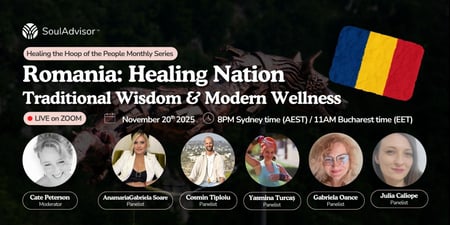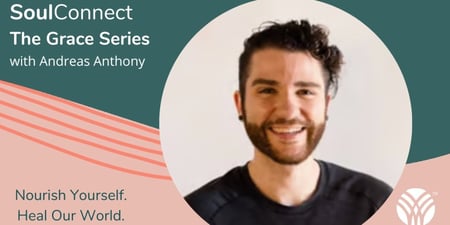Mindfulness
Mindfulness teachers near you
How can Mindfulness nourish you?
In its simplest form, mindfulness is nothing more complicated than choosing to direct your attention to what’s happening[1] in the present moment. This can mean being fully present while going on a bushwalk, or savouring a meal attentively and without hurrying, focusing on the experience of your senses rather than speculating about the future or worrying about the past.
Practising mindfulness as a form of meditation has its roots in Buddhist tradition originating some 2500 years ago,[2] and more recently in the Zen school which was brought to China around the fifth century CE.[3] In modern times, the idea of mindfulness as a path to reducing stress and improving mental clarity was popularised by Jon Kabat-Zinn. After learning about Buddhism as a student,[4] he went on to establish the Stress Reduction Clinic at the University of Massachusetts in 1979.[5]
Today, the terms ‘mindfulness’ and ‘meditation’ are often used interchangeably, but not all instances of mindfulness are necessarily a form of meditation,[6] and there are many other forms of meditation than mindfulness alone.
Benefits of Mindfulness
The mainstream acknowledgement of the benefits of mindfulness has influenced major companies such as Google,[7] Apple[8] and Salesforce[9] to prioritise teaching their employees the practice. According to one study, 22% of companies surveyed in 2016[10] offered mindfulness training.
Research suggests mindfulness may reduce the symptoms of generalised anxiety,[11] and its possible benefits for reducing stress are well-documented.[12] Mindfulness has been reported to potentially be a promising treatment for mood disorders such as depression,[13] and the results of a meta-analysis suggest that it may be effective in preventing relapses[14] into depression.
Evidence suggests mindfulness may lead to improvements in focused attention, as well as the ability to regulate emotions.[15] Research has also shown mindfulness may increase the concentration of grey matter[16] in parts of the brain associated with memory and learning.
What to expect from a Mindfulness session
Because there are so many ways to practise mindfulness, what you can expect will depend on the style of mindfulness you choose. If your preferred form of mindfulness includes meditation exercises, you will usually be invited to sit in an upright and balanced position, and guided by your teacher to progressively relax your body.
A popular type of mindfulness meditation involves directing your awareness to each part of your body[17] in turn. Another common way of developing greater clarity and focus is to pay attention to your breathing.[18] Whenever you notice your mind wandering off to different subjects, gently bring your awareness back to your breath.
Mindfulness is not limited to still, meditative states, however. You can enjoy a mindful walk through a beautiful, natural environment, paying full attention to what your senses are experiencing[19] as you walk. You can mindfully examine a work of art or even practise mindfulness while performing ordinary daily activities,[20] investing your full attention in simple tasks such as cooking, instead of doing them ‘on autopilot’ while your mind is elsewhere.
Trying simple mindfulness exercises in daily life, such as focusing on the present moment while brushing your teeth, is arguably one of the few wellness practices that you can safely undertake with virtually no risk. However, even mindfulness meditation may have unexpected effects,[21] notably if practised without the guidance of an experienced teacher, so please consult your medical professional before commencing.
If you have any concerns at all, also speak to your mindfulness instructor, who will be happy to address these and explore the option of tailoring the session to your individual requirements.
References
1. What is Mindfulness? Mindful; 2020.
2. What exactly is Vipassana, the meditation technique President Kovind swears by? India Today; 2018.
3. History of Zen Buddhism. NGV; [cited on 2024 Dec 2].
4. Matejko S. What’s the Background of Mindfulness? PsychCentral; 2022.
5. A Brief History of the Mindfulness Based Stress Reduction Course. Mindful EAS; [cited on 2024 Dec 2].
6. Mindfulness Vs Meditation: The Difference Between These Two Pathways To Well-Being And Peace Of Mind. Medical Daily; 2016.
7. Baer D. 3 Reasons Everyone At Google Is Meditating. Fast Company; 2013.
8. Why Google, Nike, and Apple Love Mindfulness Training, and How You Can Easily Love It Too. Inc.; 2017.
9. Wieczner J. Meditation Has Become A Billion-Dollar Business. Fortune; 2016.
10. More Companies are Investing in Mindfulness Programs. Healthy Business Group; 2016.
11. Hoge EA, Bui E, Marques L, Metcalf CA, Morris LK, Robinaugh DJ, et al. Randomized controlled trial of mindfulness meditation for generalized anxiety disorder. The Journal of Clinical Psychiatry; 2013.
12. Chiesa A, Serretti A. Mindfulness-Based Stress Reduction for Stress Management in Healthy People: A Review and Meta-Analysis. The Journal of Alternative and Complementary Medicine; 2009.
13. Hofmann SG, Sawyer AT, Witt AA, Oh D. The effect of mindfulness-based therapy on anxiety and depression: A meta-analytic review. Journal of Consulting and Clinical Psychology; 2010.
14. Kuyken W, Warren FC, Taylor RS, et al. Efficacy of Mindfulness-Based Cognitive Therapy in Prevention of Depressive Relapse: An Individual Patient Data Meta-analysis From Randomized Trials. JAMA Psychiatry;
15. Tang, YY., Hölzel, B. & Posner, M. The neuroscience of mindfulness meditation. Nat Rev Neurosci; 2015.
16. Hölzel BK, Carmody J, Vangel M, Congleton C, Yerramsetti SM, Gard T, et al. Mindfulness practice leads to increases in regional brain gray matter density. Psychiatry Research Neuroimaging; 2010.
17. Body scan. Living Well; [cited on 2024 Dec 2].
18. Mindful Breathing. Greater Good in Action; [cited on 2024 Dec 2].
19. Mindfulness – is it for me? ReachOut; 2023.
20. Mindfulness. Sane; [cited on 2024 Dec 2].
21. Home. The Clinical and Affective Neuroscience Laboratory; [cited on 2024 Dec 2].
Frequently asked questions
Mindfulness teachers near you
Related articles
Categories
Browse mindfulness teachers by locations
Explore mindfulness teachers within Australia
Explore mindfulness teachers within Belgium
Explore mindfulness teachers within Cambodia
Explore mindfulness teachers within Indonesia
Explore mindfulness teachers within Netherlands
Explore mindfulness teachers within South Africa
Explore mindfulness teachers within Spain
Explore mindfulness teachers within Thailand
Explore mindfulness teachers within United States
Browse Mindfulness services by locations
Explore mindfulness teachers within Australia
Explore mindfulness teachers within Netherlands
Explore mindfulness teachers within United States


















